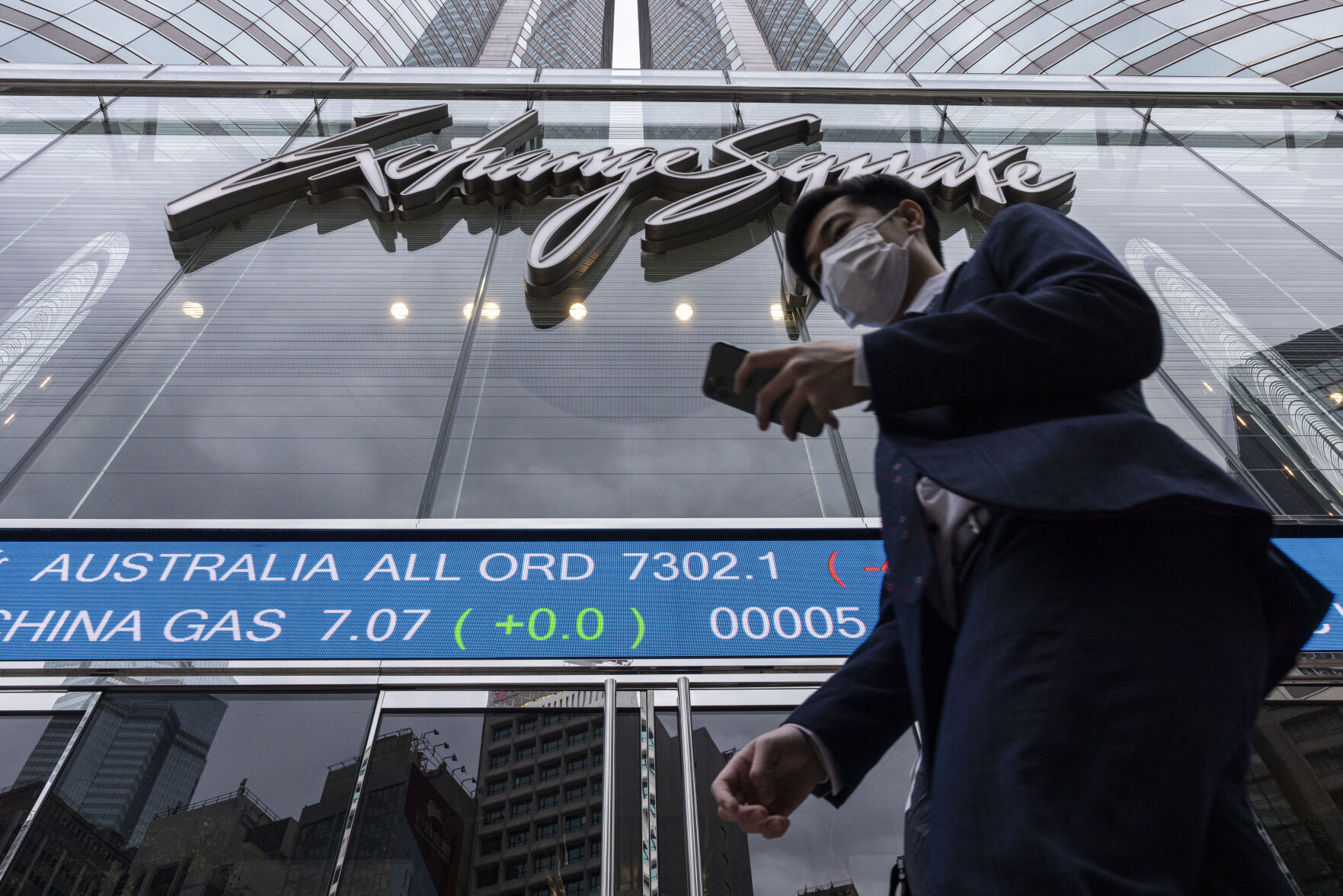TOKYO — Bank stocks sagged in Europe and U.S. stock futures fell today ahead of the market’s open in New York, shaken by a Wall Street tumble that set off worries the biggest U.S. bank failure in nearly 15 years might have ripple effects around the world. Broader markets, however, were mixed.
The STOXX Banks index of 21 major European lenders was off 4.4%, with some members seeing intraday drops in double digits. Germany’s Commzerbank was down 10.5%, and Spain’s Banco de Sabadell down 10.1%.
Dow futures were off 1.1% in premarket trading, and the S&P 500 was 1.4% lower.
France’s CAC 40 lost 2.6% to 7,030.32. Germany’s DAX dropped 2.7% to 15,012.94. Britain’s FTSE 100 dove 2.3% to 7,570.18.
In Asia, Japan’s benchmark Nikkei 225 slipped 1.1% to finish at 27,832.96. Australia’s S&P/ASX 200 lost 0.5% to 7,108.80. South Korea’s Kospi recouped earlier losses to gain 0.7% to 2,410.60.
Hong Kong’s Hang Seng jumped 2% to 19,695.97. The Shanghai Composite rose 1.2% to 3,268.70, as Chinese shares tracked earlier gains in U.S. futures that later were erased.
Before trading began in Asia, the U.S. Treasury Department, Federal Reserve and FDIC said Sunday that all Silicon Valley Bank clients will be protected and have access to their funds and announced steps designed to protect the bank’s customers and prevent more bank runs.
Regulators on Friday closed Silicon Valley Bank as investors withdrew billions of dollars from the bank in a matter of hours, marking the second-largest U.S. bank failure behind the 2008 failure of Washington Mutual. They also announced Sunday that New York-based Signature Bank was being seized after it became the third-largest bank to fail in U.S. history.
Following two bank failures, worries about financial stability and liquidity concerns were dominating the market landscape, said Stephen Innes, managing partner at SPI Asset Management in Hong Kong.
“With the market likely headed for a more turbulent period with U.S. inflation on a collision course with Bank ‘theater of tragedy,’ now is probably not the best time for investor euphoria,” Innes said.
But the sense that U.S. authorities were taking steps to limit “the contagion effect” helped calm the situation somewhat, although “markets remain skittish” in Asia, said Venkateswaran Lavanya at Mizuho Bank.
Unemployment data for Australia for February will be released Thursday. A gain of 50,000 jobs is expected, after two straight months of losses, and the unemployment rate is expected to move one tick lower to 3.6%, according to RaboResearch.
In Tokyo trading, banking issues were sold, with MUFG Bank falling 3.5%, echoing such falls in the sector on Wall Street. Shares in Mitsui Sumitomo Financial Group dipped 4%.
Worries grew recently that interest rates are set to go higher than expected after the Fed Reserve said it could reaccelerate the size of its rate hikes. The Fed is focusing on wage growth in particular in its fight against inflation. It worries too-high gains could cause a vicious cycle that worsens inflation.
Traders now largely expect the Fed to stick with a modest 0.25-point hike. Last month, the Fed slowed to that pace after earlier hiking by 0.50 and 0.75 points. The Fed has already raised rates at the fastest pace in decades and made other moves to reverse its tremendous support for the economy during the pandemic.
In energy trading, benchmark U.S. crude lost 13 cents to $76.55 a barrel. Brent crude, the international standard, edged down 14 cents to $82.64 a barrel.
In currency trading, the U.S. dollar fell to 133.90 Japanese yen from 134.96 yen. The euro cost $1.0715, up from $1.0643.


